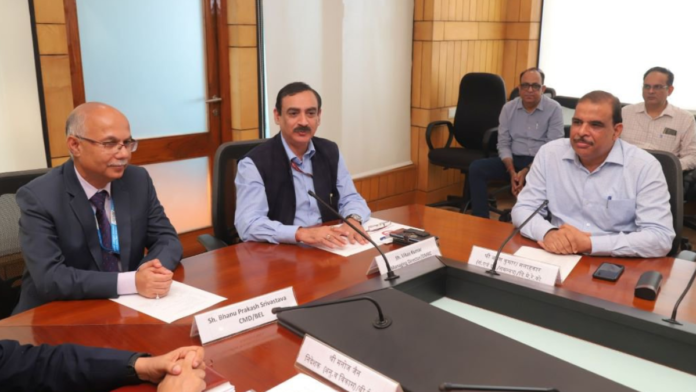DELHI (Metro Rail News): Delhi Metro Rail Corporation has signed a Memorandum Of Understanding (MoU) with Bharat Electronics Limited (BEL) to develop an indigenous Communication-based Train Control System. It will foster the era of ushering self-reliance & innovation in the field of train control signalling systems.
This system basically employs telecommunication between the trains & track equipment in order to manage the traffic & infrastructure. It allows for more accurate information as compared to the traditional signalling systems.
These days, it is being used in the majority of the metro rail projects & other rail projects too. The DMRC has already deployed the indigenous Automatic Train Supervision System (i-ATS) on the Red Line, with modifications & adjustments to suit Indian conditions.
By embracing this cutting-edge Communication-Based Train Control System, which is widely adopted by leading metros worldwide, the DMRC aims to optimise train operations, increase frequency, and enhance passenger services while efficiently utilising rail infrastructure,” the statement released by DMRC said.
The project is being operated by 50 engineers combined from DMRC & BEL, well-informed & well-prepared in the Signalling Technology, Software Development, Hardware Development, Safety Processes, RAMS, Testing, and more. The team currently sits at the i-CBTC lab of the DMRC.
“The i-CBTC project signifies a significant leap forward for the Delhi Metro. By embracing this cutting-edge Communication-Based Train Control System (CBTC), which is widely adopted by leading metros worldwide, DMRC aims to optimise train operations, increase frequency, and enhance passenger services while efficiently utilising rail infrastructure,” said Anuj Dayal, the DMRC spokesperson.
Along with offering Improved Safety, Increased Punctuality and ease of Maintenance, an Indigenous Communication-Based Train Control (i-CBTC) System will be a major boost for Make in India as well as Aatmanirbhar Bharat. This comes at a time when India is aspiring to achieve self-sufficiency in its majority aspects as a nation and economy.






